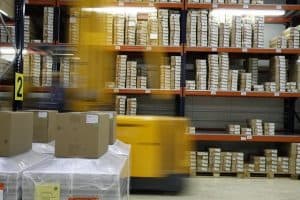Over the last 18 months, you’ve no doubt been inundated with news about Brexit. Whilst almost every aspect of the deal has been thoroughly dissected and discussed, one aspect of the rule changes that appears to have gone under the radar is the changes to the call off stock simplification and the treatment of consignment stock. Even to this day there seems to be a lot of confusion amongst business owners and those who use warehouses as to what has changed. In order to dispel any confusion, this article will explain exactly what call off stock is, the differences between it and consignment stock, and what has changed since Brexit.
The Differences Between Call Off Stock and Consignment Stock
Differentiating between call off stock and consignment stock can sometimes be difficult. Essentially, both involve a business or trader keeping their stock in another country in order to distribute them more efficiently to customers. However, there is a fundamental difference.
Call Off Stock

Call off stock is where you are giving your stock to a single client who is holding the goods in their warehouse and is intending to sell them on or use them internally but you still maintain ownership of the goods.
For example, if an Amazon seller wanted to sell on your products, but they wanted to hold them in their own warehouse and be responsible for stock levels and could move them when they pleased, this stock would be considered call off. In this scenario you would not have had to be registered for VAT in the country where the goods were being stored, but the seller would have had to be.
Consignment Stock

If the stock is being held in a warehouse that is your own, this will be considered consignment stock. Whereas call off stock is designated for one customer (from your point of view) consignment stock will be available to multiple potential customers. As you would have likely been selling the stock to local customers, you would have been required to register for VAT.
So What Has Changed Since Brexit
The short answer is everything. The call off stock simplification no longer applies to UK sellers holding stock in the EU, or vice versa. Any business who imports into the UK must now register for UK VAT to make domestic supply. This also goes for UK businesses selling into the EU. You also must register for VAT wherever you are storing the goods. This includes Amazon fulfilment centres.
Of course, this also means now that regardless of whether you make a sale or not, you cannot store consignment stock in another country without registering for VAT.
What About Stock That Was Considered Called Off Pre-Brexit?
If you had call off stock in place before Brexit the simplification is still valid and you will not have to register for VAT. However, this only applies for the first 12 months of the stock being considered called off. In other words, if you had created a call off stock agreement in December of last year, you will have until December 2021 until it is no longer considered called off stock. Once this happens, if you wish to keep the inventory stored in which ever country it is stored in, you will have to register for VAT in that country.
Conclusion
Hopefully this article has helped you understand the effect of Brexit on your stock. The key thing to remember is that you must register for VAT wherever you hold you stock, and any call off stock arrangements you had prior to Brexit will still be considered as called off stock, but only for 12 months after the beginning of the arrangement.
Inventory and warehouse management has never been more difficult. But don’t forget that we are able to help.
At J&P, we can offer our warehouse services to businesses and ecommerce sellers in the UK and EU. If you manage an inventory, we just want to let you know that we have the qualifications and knowledge to help you plan ahead. Please do not hesitate to get in touch should you have any further questions about warehousing or logistics and supply chain management. You can contact us at enquiries@jpaccountant.com, or give us a call on 0161 637 1080.
